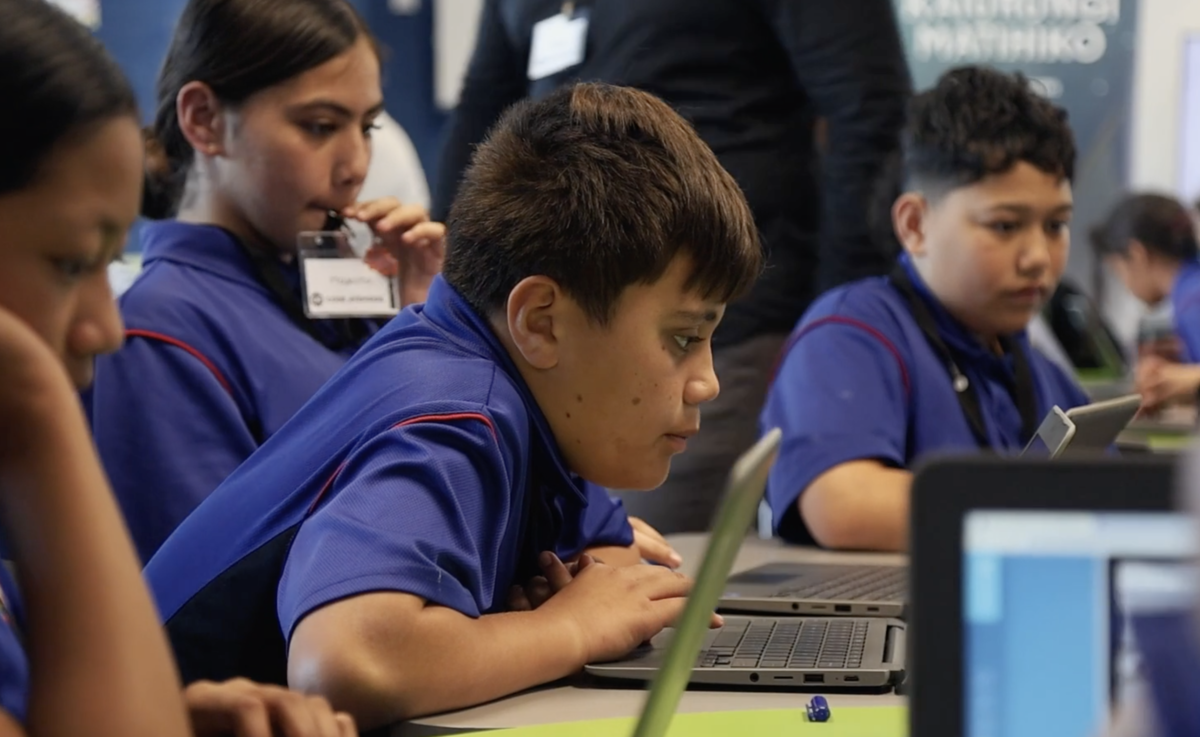New digital skills initiatives target Māori, Pasifika and the primary sector
Public cloud provider AWS has joined a handful of tech companies in offering digital access to STEM (science, technology, engineering, mathematics) topics for low-decile intermediate schools.
The Indigitech programme has already onboarded 5,700 students and 270 teachers from 33 low-decile schools across Auckland, Hamilton, Hastings, Mangakino, Northland, and Rotorua, according to AWS.
Its launch this week follows a six-month pilot with two intermediate schools. Other partners in the Indigitech programme include: Code Avengers, Education Perfect, Intel, and Lancom Technology. The programme has three key components:
• Participating schools gain free access to the digital Education Perfect (EP) curriculum including English, Math, Science, Te Reo Māori, and Te Ao Māori topics, as well free access to the Code Avengers learning platform.
• Participating teachers gain free access to a micro-credentials professional learning programme that provides guidance on how to engage students using digital technology and how to build Education Perfect into their classroom lessons.
• Participating students gain access to Education Perfect and Code Avengers’ programme within their normal school curriculum plus access to additional activities to inspire students around future careers in technology like AWS Deep Racer.
The aim of Indigitech, say the companies, is to tackle the digital skills and diversity gap that sees Māori and Pasifika make up just 4% and 2.8% of digital technology roles respectively.
According to the Digital Skills Aotearoa: Digital Skills for our Digital Future report, commissioned by the Ministry of Business, Innovation, and
Employment (MBIE) with NZTech, New Zealand needs 4,000 - 5,000 new tech professionals each year to continue its growth trajectory.

Indigitech will profiles digital skills resources to low-decile intermediate schools
“Bader Intermediate is a South Auckland school with mainly Māori or Pasifika students, and limited access to digital learning resources,” says Annabelle Bullock, deputy principal, Sir Douglas Bader Intermediate School.
“Indigitech has changed that and is giving students new digital learning opportunities, and the tools and knowledge to improve their digital competency and understanding of technology,” she adds.
The Indigitech program will run for the rest of the year within the 33 schools, with the next intake of schools beginning in October 2023, with the goal of expanding to further schools in 2024.
Agritech skills focus
Meanwhile, a separate initiative spearheaded by AWS is aimed at upskilling and reskilling farmers to take advantage of digital technologies. AWS Agritech School is offering farmers, producers and growers access to digital skills content through AWS Skill Builder, with skills courses on topics of increasing interest to the primary sector, from robotics and IoT (Internet of Things) to AI, machine learning and data analytics.
AWS Agritech School is hosted on AWS Connected Community, an online resource where businesses can join events, workshops, and ask AWS experts for free one-on-one consultation on business and technical issues.
“Cloud computing has democratised access to technology and given small and medium-sized businesses, including those in the agriculture industry, access to tools that were once only available to larger enterprises,” says Tiffany Bloomquist, commercial sector country director, AWS New Zealand.
“The opportunity for Aotearoa to become leaders in the digital economy depends on having a digitally-skilled workforce who can keep pace with the incredible pace of innovation we’re seeing today. That’s why we’re passionate about helping Kiwi farmers, producers, and growers embrace the latest technologies such as AI and ML, as they transition to running digital farms and operations.”
